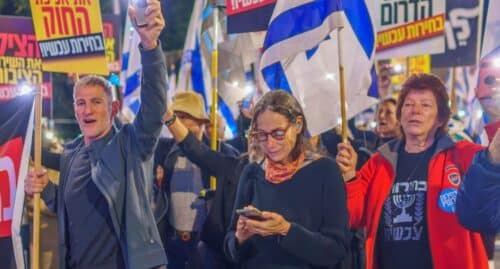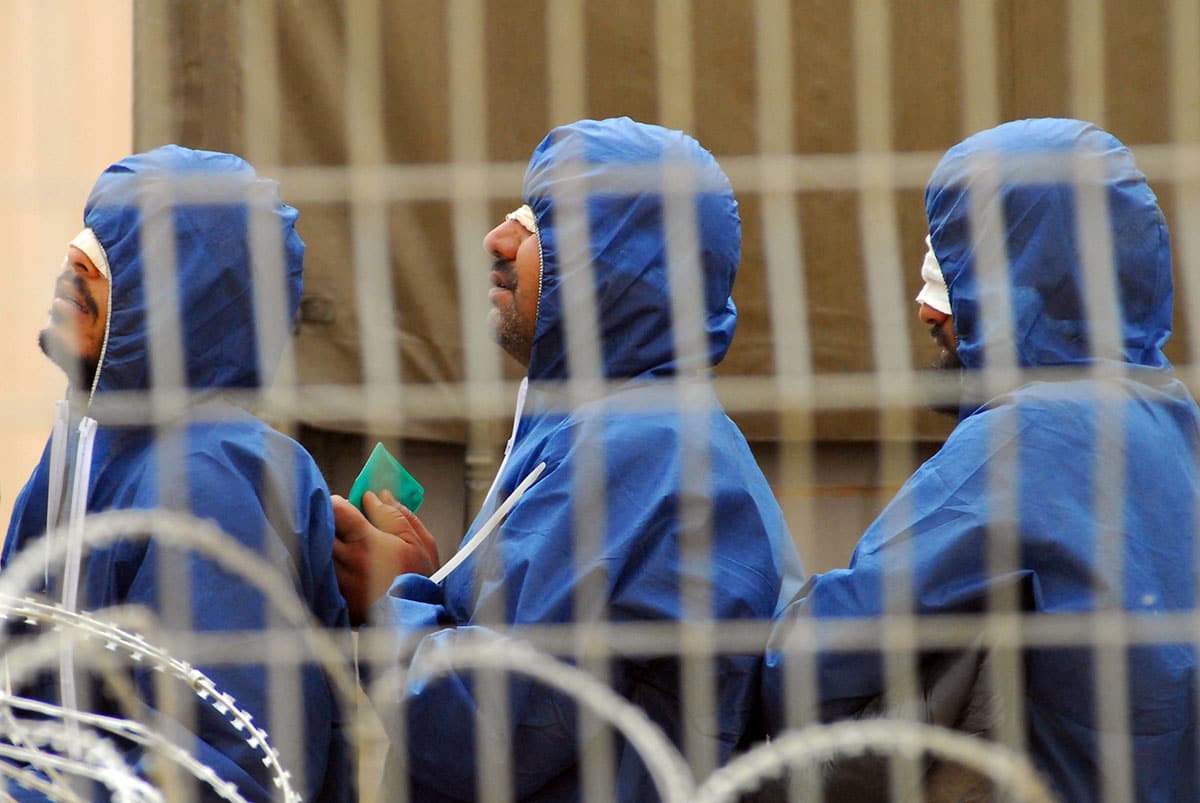
Assistant Commissioner, Brigadier General Betty Lahat served in the Israel Prison Service for 35 years, during which she filled senior positions and headed several prisons, among them the Neveh Tirtza women’s prison, the Sharon Prison and the Hadarim detention center which has been housing many high-profile Palestinian security prisoners. Her last position with the IPS was head of the Service’s intelligence department, in the capacity of which she had met many of the Palestinian security prisoners, Yahya Sinwar among them.
During her years in various positions, Lahat had worked with inmates from many demographics – from youths and women to heads of crime and arch-terrorists. “I’ve experienced a fair share of heartache during my career, and witnessed time and time again our inability to break the cycles of crime and terror”, she says. “I’ve raised generations of inmates – I had female inmates that gave birth while serving prison sentences, and later met their children in juvenile prisons, some of which even remembered me, and how I would throw them birthday parties in the prison cafeteria when they would visit their mothers. I would look at them and think to myself – they’re my children’s age, why did they have to end up in a place like this? It’s a huge heartache. On the other extreme, I have met some of the bloodiest terrorists and had to watch them as they walk around the prison yard, chatting away, laughing and enjoying themselves, while I had to ensure they received appropriate care. There were times when I would get home and say to myself ‘good lord, what kind of a world am I living in?’”
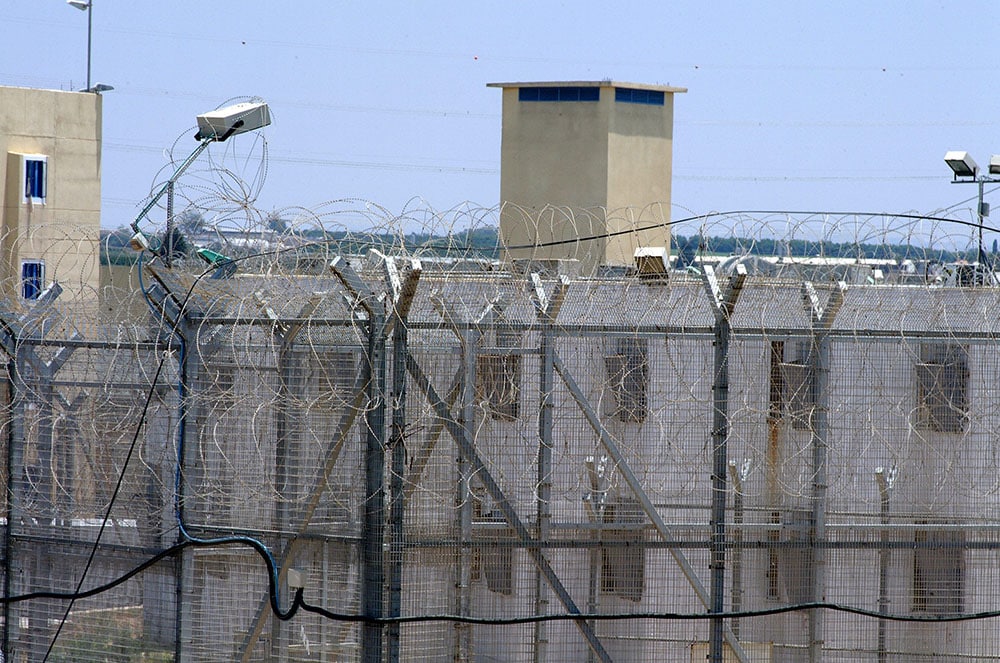
We knew that his word was the law: the prisoner Yahya Sinwar
Over the years, Betty Lahat had seen some of the most dangerous prisoners Israel’s prisons had known. She had met murderers and heads of crime, and she had met some of the highest profile terrorists. Under her wardenship she had seen the likes of Hamas founder Ahmad Yassin, head of the Hamas military wing Salah Shehade, and head of izz ad-Din al-Qassam Brigades in Judea and Samaria Ibrahim Hamed, who orchestrated most of the terror attacks during the Second Intifada. However, one of the most memorable inmates for Lahat – mainly due to his nefarious intelligence and shocking cruelty – is Yahya Sinwar.
What was your impression of Sinwar?
“I remember him as a very dominant figure who was very cruel. The prisoners elected him time after time as their prison leader. As such, he put together inmate terror cells and a telecommunications reconnaissance team that was tasked with gathering intel within and outside of the prison. He also commanded special units that interrogated new prisoners. Any prisoner suspected of collaborating with Israel was cruelly tortured. Naturally, Sinwar never did any of the dirty work himself, but it was clear that he was the one pulling the strings. He also took under his wing the most murderous terrorist that would arrive at the prison, and promoted them up the ranks. For example, he took under his wing Abdel-Aziz Salha, a West Bank Hamas militant jailed for life for his part in the lynching of two Israeli soldiers in Ramallah, famously depicted standing at a window holding up blood-stained hands, and made him head of the telecommunications units in the prison. He also added to his ranks the murderers of the Fogel family and the perpetrator of the deadly bombing of the Park Hotel in Netanya. Later, during negotiations for the release of abducted Israeli soldier Gilad Shalit, Sinwar was involved in the selection of the terrorists to be released. He made sure that he and his cronies were on the list, and left out prisoners that were at odds with him. That was the kind of power he had”.
Would you have believed that Sinwar was able to orchestrate an attack on the scale of the October 7 massacre?
“Absolutely. Sinwar had no interest in coexistence and had always proclaimed he would never be resigned to the ‘Zionist settlers’ living on what he saw as the land of Palestine. I listened to him a lot, both in direct conversations I had with him as well as conversations with his prison associates we tapped. I had never witnessed him stray from his way of thought and staunch ideology. He had grand schemes and he truly believed that by 2027, he would lead a brutal attack that would result in the victory of Hamas over Israel – so whoever tries to claim that Sinwar held a pragmatic approach toward Israel has no idea what he is talking about”.
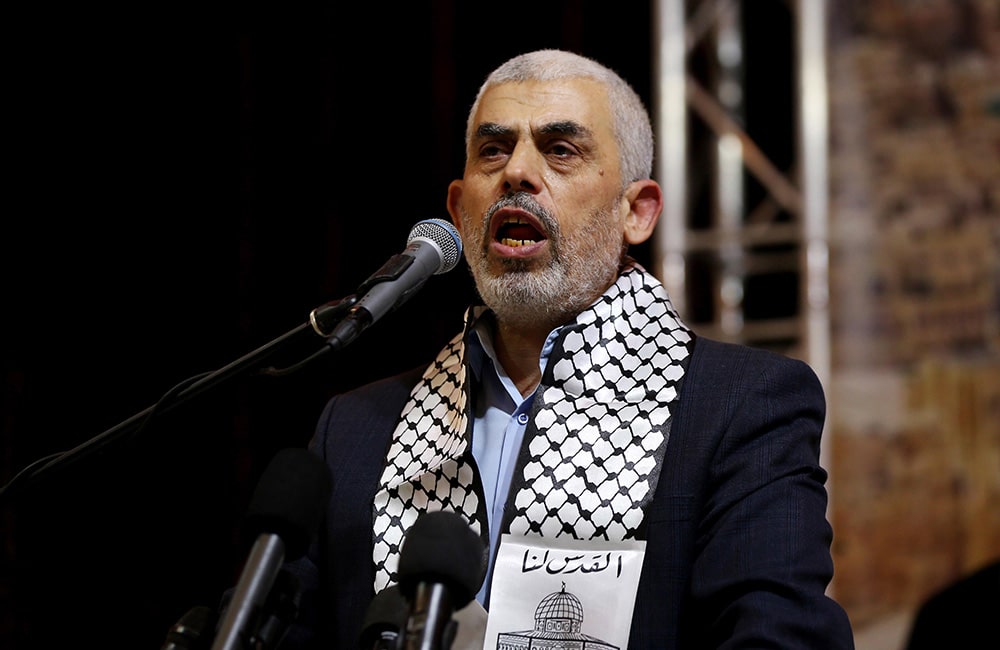
To what extent was Sinwar involved in events outside of prison?
“In my time, we had designated Sinwar as a national target prisoner, in other words, a prisoner that demands constant surveillance, as his sphere of influence extended beyond prison walls. He was extremely involved with what was happening in other security prisons and was very knowledgeable about current affairs in Israel. You must understand that Sinwar was deviously intelligent. He got to know Israeli society like the back of his hand and could analyze it brilliantly. It was clear from an early stage that he had set his mind on fragmenting Israeli society from within, and he knew just how to do it. His objective of fomenting discord in Israel was clearly evident even during the Gaza war, and it is clear to me that when he emerged from the tunnels and saw Gaza in ruins, he got the tailwind to carry on his fight from seeing the discord in Israel’s society and he believed he would eventually prevail”.
You participated in the discussions on the list of terrorists to be released as part of the Shalit deal. Where did you stand on the release of Sinwar?
“I had a very hard time with Sinwar’s release, and I had warned them that this is not a terrorist that should be set free. At one point, one of the negotiation team members asked me ‘what do you have against Sinwar? He didn’t kill any Jews, he only killed Palestinian collaborators’, to which I responded – ‘Just wait. He’ll have plenty of Jewish blood on his hands’. I don’t know exactly what I meant when I said this, but it was clear to me that once he sees an opportunity to commit heinous attacks against Jews – he’ll seize it. Whoever gets to know terrorists like Sinwar, and spends so much time with them as I did, knows what they’re capable of. And whoever was surprised by the sheer cruelty of the terrorist in the October 7 attack didn’t really know them at all”.
It is not a prison. It is summer camp for terrorists
Betty Lahat is very familiar with the situation in Israeli prisons and knows the conditions under which various classes of prisoners are held. She has a hard time accepting the manner in which prisoners – particularly security prisoners – manipulate public opinion in Israel and its justice system to gain unjustified amenities.
“The Palestinian security prisoners know that the Israeli justice system will always take care of them and that the doors of the High Court of Justice are always open to them”, says Lahat. “We are under the impression that when the prisons are quiet, and we give them what they want, we can rehabilitate them and change their ways. But what we fail to understand is that this humane approach is to our detriment. The better the conditions we give them are, the more they perceive us as weak. Even saving their lives has no effect on them. I spoke to Sinwar after he underwent surgery to remove a malignant tumor from his brain in an Israeli hospital. I asked him whether he now has some gratitude toward Israel, to which he replied that he has nothing to be grateful for as we simply did our job. We need to forgo this illusion that if we give them favorable conditions in prison, we can remove them from the path of terror. In all my years with the Israeli Prison Service, I’ve not once encountered a Hamas prisoner that had forsaken his ideology. It just doesn’t happen”.
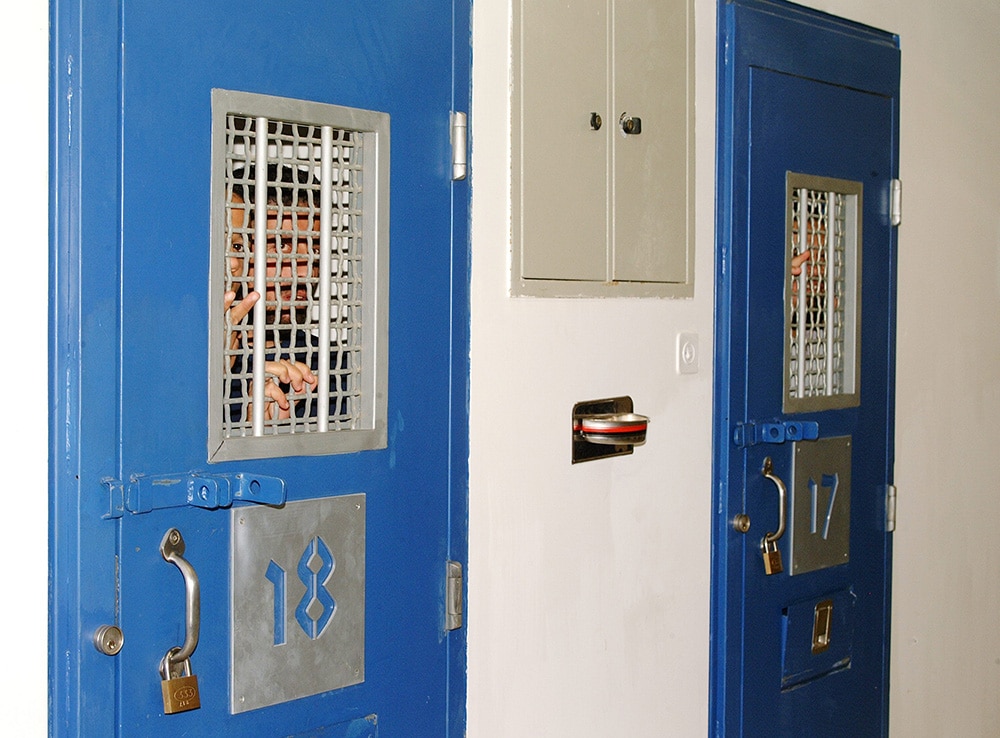
What does the life of a security inmate look like?
“Each inmate must participate in a mandatory educational program. They also get to study for academic degrees through the Open University. In fact, the Palestinian Authority actually encourages them to earn an education in prison. The higher their academic achievement – the more money they get. In addition, they have a large library and there is not one book that reaches the book stores in Israel that is not added to their library immediately. I’ve seen with my own eyes Palestinian inmates reading canonic Jewish literature such as Jabotinsky’s ‘Iron Wall’ and Yehuda Ha’Levi’s ‘Kuzari’. They also regularly receive Israeli newspapers, their favorite being Ha’aretz – they have a permanent subscription and have a fit when it fails to arrive. In addition to the enrichment programs they’re entitled to from the system, the terror cells within the prisons cultivate education among their members – every member is required to learn Hebrew and serve a period as their spokesman. They are also taught to gather intel, follow their guards, and follow commentary on Israeli news. They listen to the news and read the papers, and then they sit together and analyze the news and commentary. In particular they pay close attention to the social discord in Israel, to assess how fatigued Israeli society is and thus willing to make concessions. You have to understand that the Palestinian security inmate lives under iron discipline – especially those of them who are members of Hamas and the Palestinian Islamic Jihad. They waste no time and utilize their prison time to acquire education and skills that will come in handy for their terror activity and long-term plan execution”.
What is your opinion on the criticism on the living conditions of the security inmates?
“Security prisoners are not supposed to have the same conditions that criminal prisoners have, and this is also supported by international law. Whoever murders Jews just for being Jews should be held under completely different conditions. But in practice, the security prisons have long become a summer camp for terrorists. This happens, among others because of the justice system and the High Court of Justice, that hand down phantasmagoric rulings that are utterly out of touch with the reality in the prisons. One day, we were told that we cannot search under the prisoners’ prayer mats because it is disrespectful to their faith – do they even know what prisoners can hide or dig under their mats? As a matter of fact, there are Palestinian security prisoners whose sole job is to sit and compose petitions to the High Court of Justice. That is their job, to send petition after petition, and drive the system crazy. And if that were not enough, they also use lawyers and politicians to help them send out messages to associates on the outside and coordinate plans, and the General Security Service and the Attorney General’s office allow this to happen. If you ask me, the responsibility for the living conditions of security inmates should rest solely in the hands of the IPS, which is the suitable professional body for this, and my vast experience with the IPS teaches me that it would ensure that the security prisoners are treated according to what is stipulated by international law – no more, no less”.
“Every intelligence agency thinks they have a monopoly on brains”
Having climbed to key positions in the Israel Prison Service, Brigadier General Lahat has deep insights not only into the reality within prison walls but also on the fashion in which Israel’s entire security and intelligence apparatus works. One of the most material issues that she points to is the lack of collaboration among the various intelligence agencies. “Each agency thinks it has a monopoly on brains and that it knows better”, she says. “There is a lot of patronizing going around in these agencies, especially on part of the GSS and certain units within IDF Intelligence, and they don’t really strive to cooperate with the police and the prison service. When I was head of the IPS intelligence department, I literally begged them to collaborate with us because I knew we at the prison service, engaging with these prisoners on a daily basis, have valuable input. At that time some improvement was made in the relations between the IP and the intelligence agencies, but I think it pretty much went back to what it used to be. Even today, when I look at what is happening in the Israeli intelligence community, I see nothing has changed”.
What about the deals for the release of prisoners – are they made without the IPS input?
“When they signed the Jibril prisoner exchange agreement (in 1985, when Israel had released 1,500 Palestinian prisoners – some of them very high profile – in exchange for three Israeli soldiers captured in the First Lebanon War), we were not consulted at all, and in the Shalit deal – our involvement was just for appearances. Only after insisting on the presence of the Prison Service in the negotiations on the release of the terrorists, I was invited to the meetings. But even then, my role amounted to presenting background information on the terrorists. After all, the GSS is sure it knows everything, so why should it consult in the IPS?”
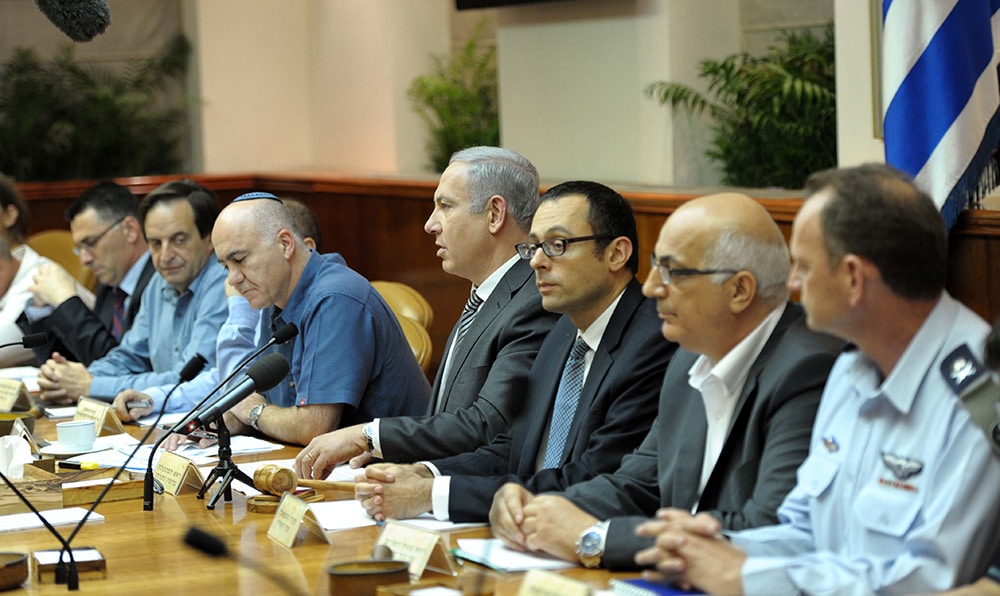
Sounds like you have a bellyful of grievances on the GSS. What is your opinion on its work in the past year?
“There are outstanding people in the GSS who do invaluable work, but personally I think that the GSS is a body that takes on responsibilities that are not within its scope of duty – and often this comes at the expense of tasks that are”.
Generally speaking, do you get the impression that the policy of releasing prisoners in exchange for hostages influences the state of mind of the Palestinian prisoners?
“Very much so. The Palestinian prisoners truly believe that it’s only a matter of time till they are released and this keeps their spirits high. They don’t care how many years they’re sentenced to. Even prisoners who are sentenced to 60 years will say ‘Walla Ishi – “that’s nothing” – because they know that at one point or another, Israelis will be kidnapped and they’ll just be released in an exchange deal. Factually, they are not wrong”.
Are there any prisoners that will never be released with any deal?
“Aside from Yigal Amir (who is serving a life sentence for the assassination of PM Yitzhak Rabin) I know of no such prisoner. In the Jibreal deal and the Shalit deal we’ve released the worst of the terrorists, and I see the names of the terrorist that are on the table for release in the current exchange negotiations for the Israeli hostages in Gaza and I’m absolutely appalled. When it comes to security prisoners, sooner or later they all get a chance to be released in an exchange deal”.

My family and I received threats, but I was never afraid
Retired Assistant Commissioner Betty Lahat is not just a former senior officer of the Israeli Prison Service – she is one of the first women in the organization to have scaled the ranks and chalk up such an impressive track record. “I don’t wave a feminist banner, but I have opened the doors to many women that followed in my footsteps and I’ve proved that we are every bit as good as the men in the IPS”, she admits. “I was a strong woman in a masculine environment and that wasn’t easy. When I was appointed head of the Sharon Prison, which is one of Israel’s highest security prisons, there was big drama. Some had a hard time accepting a woman at the head of a men’s prison. When I first arrived, I was the target of scorning looks and remarks. But I didn’t let it affect me. I gathered everyone and proclaimed that I will not apologize for being a woman. Very soon, they all came to see my vast knowledge and experience, coupled with a deep familiarity with the brass tacks. They also saw how motivated I was and the important changes I effected, and no one dared act behind my back or try to sabotage me”.
Your job entailed daily dealings with the most dangerous prisoners in Israel. Weren’t you afraid?
“I had sat in the same room as heads of crime; I’ve sent terrorists to solitary confinement, and there was even a time when I would travel to Gaza by myself – I never felt scared. Even when our intelligence department notified me that there is intel about threats against me, I insisted to go into the wards and meet the prisoners. My family had also received dozens of threats. Marwan Barghouti’s people, for example, threatened to come after me for months because I took away some of their amenities in prison. I had to have a police detail on my house, but even then, I was not afraid. That was my job and that was part of the risk I had assumed with the job”.
What have you learned after 35 years with the IPS?
“One of the most painful insights that I’ve gained from my years with the IPS is that we cannot eradicate the incitement of terror in Palestinian society, and in truth – we really aren’t trying. Many of the Palestinians and Israeli Arabs are weaned from a very young age on hatred toward Jews, and then they go to school – some of them funded by the State of Israel – and are fed yet more false narratives. And if that weren’t enough, young boys are offered incentives for committing terror attacks. There are adolescents that are at the fringe of society, but after committing attacks against Israel, they are suddenly accepted, their families are provided for and they receive a salary. Also, in Israeli prisons, they are required to get their high school diploma, which is something that they could never have hoped to achieve on the outside. So what interest do they have to change their ways? From what I saw, we do not really have the wherewithal to prevent these boys from becoming heinous terrorists in the future. Just like we cannot prevent the released terrorists from returning to terrorism, nor from female prisoners from raising future generations of terrorists. These are unbreakable cycles”.
How had your career shape your outlook today as a citizen of Israel?
“I think my work taught me that there is no such thing as black and white. The reality in Israel is very complex and it is about time we stop trying to pull the country to one extreme or another. This is also one of the reasons I had joined the IDSF HaBithonistim movement. To me it is a hate-free movement that comes from a pragmatic stand point. The movement places the well-being of Israel above all and gives serious consideration to every issue related to the country’s security. This gives me the hope that it can lead us and the country to a better place”.




